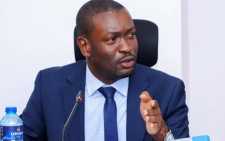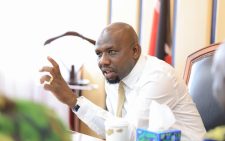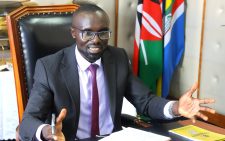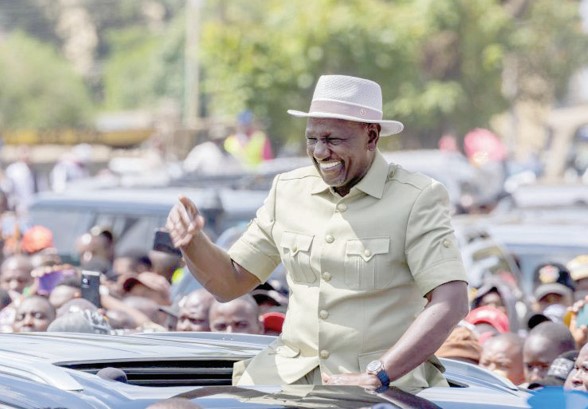US Paris pact backtrack, aid freeze risks climate funding
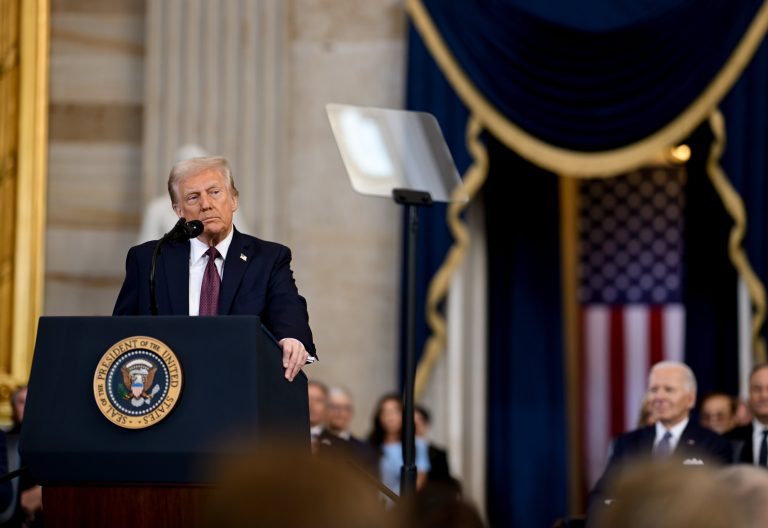
US President Donald’s shocking freeze on financial aid to developing countries is threatening to hurt climate funding, although there’s a glimmer of hope other nations will step in to fill the gap if the embargo lasts.
Trump’s shock announcement, though not surprising on the climate front, came after he confirmed upon his stunning comeback to the White House, that the US will exit the Paris Agreement. Trump also doubled down on fossil fuels and pushed back against electric vehicles and wind power – that promote clean energy.
In stopping money flowing to USAid, America’s development agency, Trump signalled its death knell with the sacking of the majority of its workers, effectively cutting off funding for climate projects worth millions of dollars globally.
However, there was a brief respite on Friday as District Judge Carl Nichols, who was nominated by Trump in his first term, partially granted a request from the largest US government workers union and an association of foreign service workers who sued the administration’s efforts to close the agency, terming it unconstitutional.
The order, which will be in effect until February 14, blocks the Trump administration from implementing plans to place about 2,200 USAid workers on paid leave and reinstated 500 employees out of a worldwide workforce of more than 10,000 who had already been furloughed.
Shocking speed
It also bars the administration from relocating USAid humanitarian workers stationed outside the US. The judge will consider a request for a longer-term pause at a hearing scheduled for Wednesday. In his ruling, he wrote that the unions had made a “strong showing irreparable harm” if the court did not intervene.
“I think this is the end of US climate funding,” Washington-based think tank Centre for Global Development’s Karen Mathiasen told the authoritative UK-based Climate Home News, describing as “shocking” the speed and brazenness with which Washington has attempted to dismantle its foreign aid arm.
Southern Africa is on course to be one of the biggest losers, with budgeted funding of US$84.5 million up to 2028 to support the rollout of clean energy across the region aiming to set up 3 million new electricity connections. Malawi’s US-funded projects were halted just as the impoverished country was hit by flooding.
United Nations climate chief Simon Stiell tried to calm the storm created by Trump’s shocker but conceded that “geopolitical headwinds are not in our favour”.
However, he added with some optimism that if one country steps back, “others are already stepping back, others are already stepping into their place to seize the opportunity, and to reap the massive rewards, including stronger economies, less pollution and more affordable energy”.
Climate Home reports in its latest edition that “the extent to which the US-sized hole will be filled remains to be seen when more countries land their 2035 emissions reduction targets and updated nationally determined contribution (NDC) plans to meet them.
Either way, that’s not likely to be until later in the year for some of the biggest emitters, including the European Union, China and India. The original, and largely symbolic deadline for these plans – today, 10 February – will only be met by a handful of countries.
Realising this, the UN climate body this week magnanimously gave the rest until September to come up with “first-rate” plans, which Stiell described as “among the most important policy documents governments will produce this century”.
The new date is the final call for the UN to be able to work out the emissions-cutting sums, and show the world, before the UN Climate Conference (COP30) in Belem, Brazil, the size of the gap for keeping within the temperature limits set in the Paris Agreement. With confirmation that the planet racked up its hottest January on record, the pressure is rising.
Other large US-backed renewable energy projects that are likely to suffer target Bangladesh, Central Asia, Colombia, Ecuador and Eastern Europe. Most are implemented by profit making-American corporations that would be financially hit by any funding cuts.
Climate adaptation also features prominently. In the last year alone, USAid committed US$22 million to help farming communities in Iraq deal with climate-related drought and US$18.5 million for climate resilience in Palestine.
Climate Home notes bleakly that “given the Trump team’s additional aggressive moves on the climate finance front – including rescinding US$4 billion in outstanding pledges to the Green Climate Fund, clean energy and adaptation programmes seem unlikely to be covered” by Secretary of State Marco Rubio’s assurances that the US is not walking away from foreign aid.
For the foreseeable future, they add, large clean power projects in Africa will need to turn to their non-US backers for additional sustenance.
The US’s hasty retreat from climate action is also shaking diplomatic circles amid unconfirmed rumours that other countries, including Argentina and Indonesia, may also run for the Paris Agreement exit.
Trump and tech billionaire Elon Musk, his key campaign funder during the November election that swept him and the rightist Republican Party back to power, are posing an existential threat to climate projects worldwide. Musk now heads his new strangely-named Department of Government Efficiency (DOGE).
Trump-ally Musk, the world’s richest man, has labelled USAid as a criminal organisation, without providing evidence and called for its closure. The onslaught against USAid puts at risk close to US$500 million to be slashed from grant-based climate funding for developing countries if its 90-day funding freeze and programmes review succeeds in dismantling the aid agency.
Halting operations
USAID is the world’s largest bilateral development assistance agency and a major provider of grant-based finance for climate action in the Global South. Its climate programmes – amounting to close to half a billion dollars in 2024 – help countries cut greenhouse gas emissions and protect their citizens from the escalating effects of global warming, states Climate Home.
“The sudden move has thrown the development world into disarray, bewilderment and confusion, with organisations forced to halt operations overnight and furlough or lay off staff without obtaining clear information or guidance from US officials”.
Global humanitarian groups, no longer able to transfer funds to local partners, making it really hard for them to manage costs, described the funding freeze as devastating for frontline organisations. One group working in conflict-afflicted regions supports projects to build climate resilience that struggle to attract any funding outside of development money, said that has all gone away now.
“For many programmes, a 90-day pause is as good as a cancellation because you lose all momentum, you lose community connection, you lose the trust you built up with communities which is vital to success,” the groups warned, speaking anonymously due to the sensitivity of the situation.
In many African countries like Malawi, all USAid-funded projects have been halted, with workers told to remain at home, just as the country was hit by deadly floods last week. Many of its projects include climate-related activities in very fragile and conflict-affected regions.
Any fundamental reforms of the agency, especially its touted abolition, would legally need to be approved by the Republican-controlled Congress. But as far as climate action is concerned, some experts believe the writing is already on the wall.




